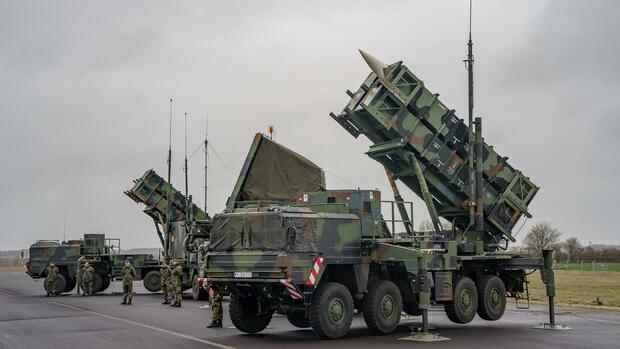Berlin In view of the planned EUR 100 billion special fund for the Bundeswehr and the prospect of an increase in the defense budget, the Federal Court of Auditors is calling for the funds to be used responsibly. The federal government must “think carefully about every defense euro, plan well and then invest,” said the President of the Court of Auditors, Kay Scheller, to journalists on Tuesday.
In order to accelerate the procurement of necessary armaments and make it more cost-effective, effective receivables controlling at the level of the inspector general is necessary so that orders are not overloaded with special requests.
As an example, Scheller cited more than 1,500 of his own requirements that the German Armed Forces wanted to see taken into account when purchasing a heavy transport helicopter. Germany shouldn’t just rely on the “gold rim solution” set with diamonds, but must order more of what is available on the market – ideally together with NATO partners.
The supplement to its annual report, which the Court of Auditors handed over to the Bundestag on Tuesday, shows that there are often problems when planning requirements. For example, since 2006 the Bundeswehr has bought software for property and personnel management for more than 50 million euros, which it does not need at all. At least five million euros are due annually for the maintenance of unused programs.
Top jobs of the day
Find the best jobs now and
be notified by email.
>> Read here: Five corvettes, 50 fighter jets, 350 Puma tanks – how Germany is arming itself
The planned cyber situation center, in which 60 million euros have already been invested, is not making any progress. It should actually be ready for use in 2023, when Germany takes over the leadership of NATO’s rapid reaction force, and help, for example, to identify false reports on the Internet. An important capability, as demonstrated by the Russian army’s hybrid warfare in Ukraine.
Insufficient control against corruption
But in view of inadequate planning, a lack of staff, unclear specifications and financing problems, it is questionable whether the project will ever be successful, writes the Court of Auditors. In addition, despite repeated warnings from the auditors, too little is still being done to prevent corruption in the Bundeswehr Procurement Office.
The staff in posts at risk of corruption do not change as regularly as would be desirable, Scheller criticized: “First and foremost, we see a lack of control by the ministry.”
The auditors were extremely critical of the planned special fund for the Bundeswehr, which requires an amendment to the Basic Law. Scheller emphasized that the goal of increasing Germany’s ability to defend itself and form alliances is correct. But: “The financing of this core task belongs in the core budget.”
The model from the US manufacturer Lockheed Martin is in the running for the order for a new heavy transport helicopter for the Bundeswehr.
(Photo: AFP/Getty Images)
A special fund only creates a lack of transparency and serves as a “financial policy fig leaf” for undermining the debt rules. The President of the Federal Audit Office warned that there should be no “dam bursting”. Instead, the financial needs of the Bundeswehr could have been taken into account with higher expenditure and commitment appropriations in the regular budget of the Ministry of Defence.
Because the special fund requires an amendment to the Basic Law, talks are still being held between the traffic light coalition and the Union to achieve the required two-thirds majority.
Scheller warned the federal government to ensure the greatest possible transparency about the use of the special fund and a clear distinction from the regular budget.
It must be clear what is being financed from the special fund and what is being financed from the budget. It must also be clear which follow-up costs the purchases financed from the special fund will entail, for example for the ongoing operation of a weapon system.
Kay Scheller criticizes that the staff in posts at risk of corruption do not change regularly enough: “We see a lack of control by the ministry.”
(Photo: imago/Reiner Zensen)
Since the special fund is limited in time, it must also be clarified whether the defense budget should then be increased in one fell swoop from the current 50 billion to 70 billion euros. This magnitude would be necessary to meet the promise made to NATO partners to invest two percent of economic output in defense.
>> Read here: 100 billion euros: This is how the FDP wants to bring the money to the troops
In order to be able to use the additional billions effectively, sensible needs planning is more important than ever, said the President of the Federal Audit Office. In addition, priority must be given to measures that actually improve operational readiness.
In this context, Scheller mentioned the acquisition of completely overpriced tankers for the navy. Instead of buying existing tankers on the market, warships were ordered to act as tankers. Of course, it was also about location politics.
Scheller took a protective stand in front of the Federal Office for Equipment, Information Technology and Use of the German Armed Forces in Koblenz, usually just called the Procurement Office. This is “not as bad as it is often made out to be”. But armament projects are too often overburdened by political influence, personnel changes at inspector level or exaggerated demands.
More on this: Inspector General: Germany is considering buying missile defense systems from the USA or Israel
